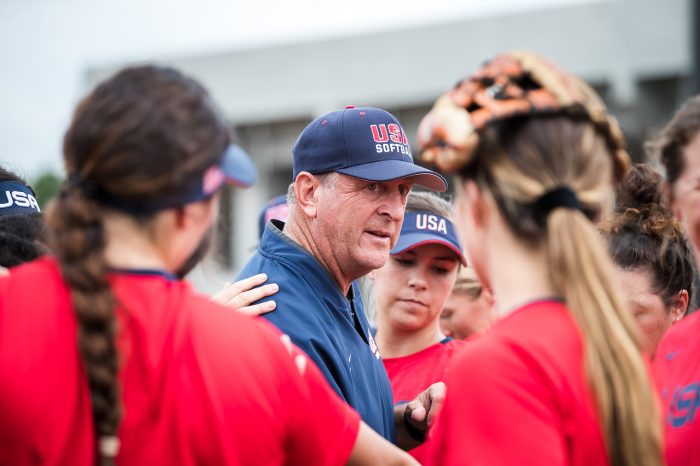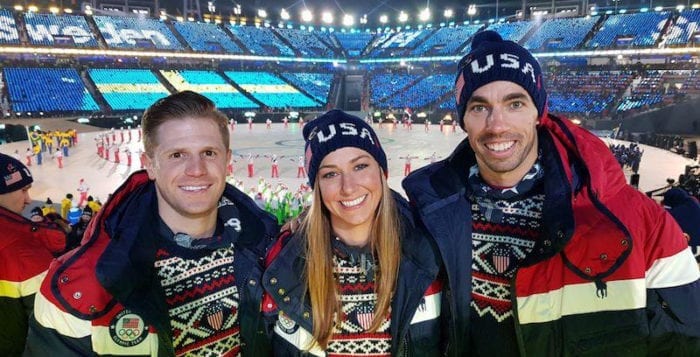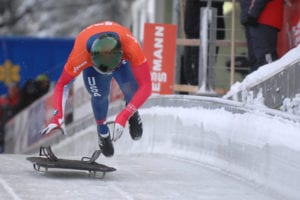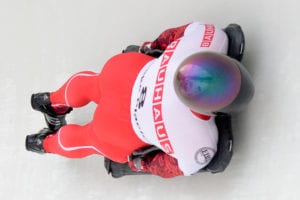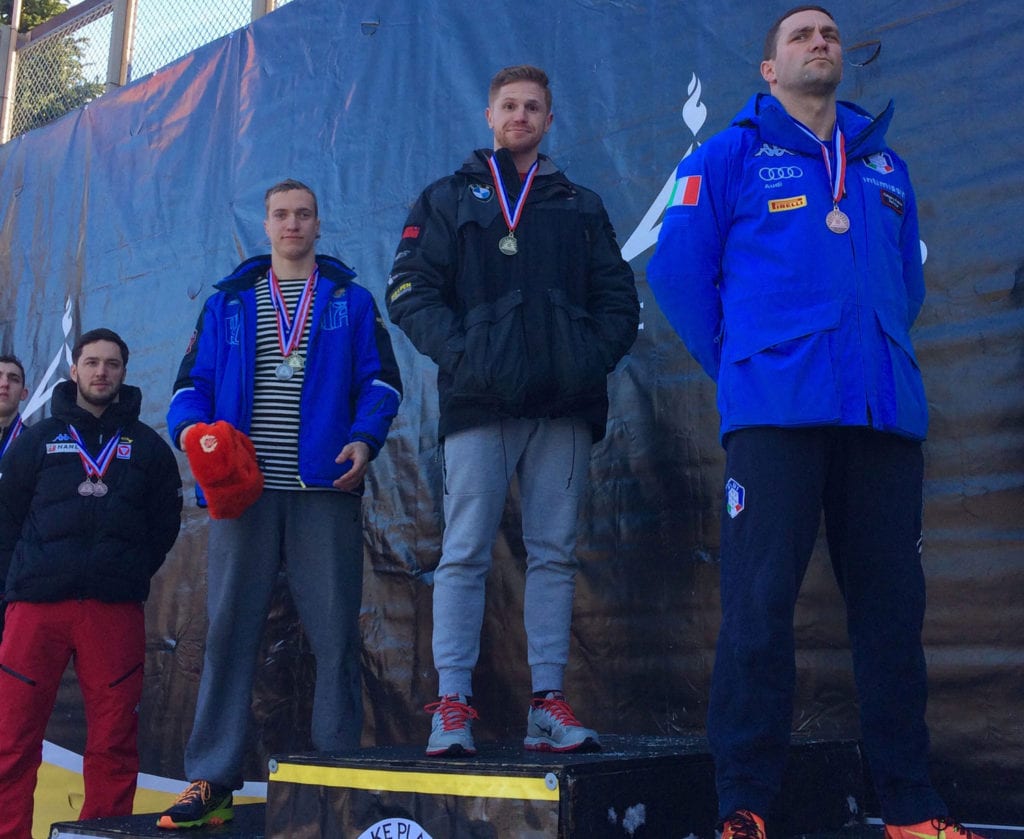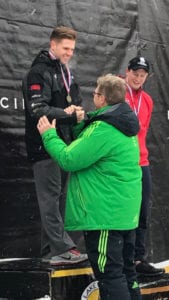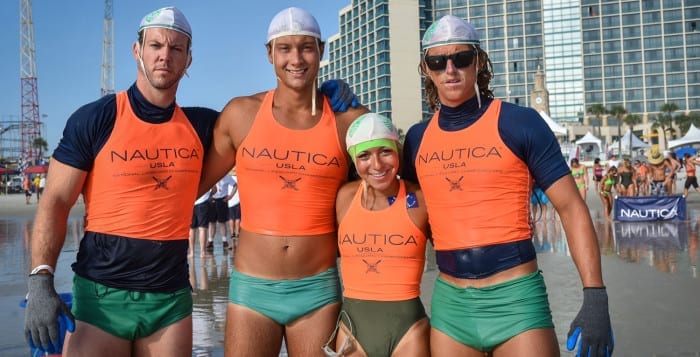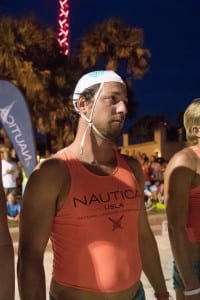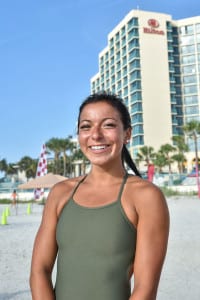Coached by 1979 Ward Melville High School graduate Ken Eriksen, Team USA softball team ran out of walk-off magic in the gold medal game Tuesday.
After coming from behind to beat Australia, 2-1, and then Japan by the same score in the last two games before the final, Team USA couldn’t rally to beat Japan in the gold medal game, falling 2-0.
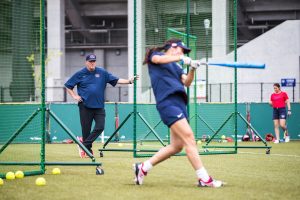
Eriksen, who had a successful college baseball career, has extensive softball coaching and playing experience, including as the current head coach of the University of South Florida for over 24 years. He has had several roles with the national team over the years, including as an assistant on the 2004 Olympic team that won gold in Athens. He became head coach of Team USA in 2011.
Members of the local athletic community expressed their admiration for the coach and his involvement at the Olympic games.
“For one of our former student athletes to be coaching on the highest stage possible in the world is something we’re so proud of,” said Kevin Finnerty, athletic director of the Three Village Central School District. Eriksen’s role shows “that our students, through hard work, effort and time can” reach their goals.
Joseph Burger, who has been coaching softball at Ward Melville for seven years, appreciated the connection between Eriksen and the high school.
“When you have a Ward Melville graduate coaching the Olympic team, that sheds a great light on the sport and what we’re trying to do here,” Burger said. “This is very positive for the program.”
Burger appreciated how Team USA showed sportsmanship at the end of the loss, which, he said, reflects well on the coach.
Burger, who posted the Team USA softball schedule on the high school softball team’s Instagram page, said the games set a great example for his players.
The Olympians are “aggressive toward the ball,” he said.
Rising Ward Melville junior third baseman and team captain Alicea Pepitone watched the gold medal game.
“They played their hearts out this whole series in the Olympics,” said Pepitone, who would like to play in college. “They should be proud, even though it didn’t go down the way they wanted it to.”
Pepitone thought it was “awesome” that Coach Eriksen attended Ward Melville. She recalls watching softball in the Olympics in 2008.
“I want to be one of those girls on that field and wearing that jersey,” she said.
Reached by email before the final game, Eriksen responded to TBR’s questions from Tokyo.
TBR: Who were some of your softball mentors growing up in Setauket?
Eriksen: My coaching mentors from Long Island were Russ Cain at Gelinas Junior High School and Coach Everett Hart. They were both tremendous teachers. They both taught the game, and you would never know you were up by 10 or down by 10. They treated and respected the game as it should be … a teaching platform for life.
TBR: Have you emulated any of the coaching patterns you observed as a player?
Eriksen: Most definitely. It’s all about the players’ ability to be prepared for any situation and trust them to react to the situations.
TBR: What is the best advice you received as a player?
Eriksen: Trust your preparation. Less is more.
TBR: Do you use that advice with the players on USA softball?
Eriksen: Every day.
TBR: Is the sport of softball any different than it was during the age of Jennie Finch?
Eriksen: It’s more competitive worldwide now than it was prior to 2008. You can see that by the competition in the last four World Championships and the 2021 games.
TBR: Does the sport require any different skill sets?
Eriksen: Absolutely as it does comparatively to baseball.
TBR: How is USA softball any different from softball in the rest of the world?
Eriksen: The expectations sometimes are unrealistic in respect of not thinking it’s a global game.
TBR: Does your team or does the program emphasize specific skills that differentiate it from softball in the rest of the world?
Eriksen: Not really. Everyone spends an inordinate amount of time trying to be flawless.
TBR: What is different about coaching and playing?
Eriksen: It was easier to play! Only had to worry about me!
TBR: Have you had to learn different skill sets as a coach than you had as a player?
Eriksen: Obviously when you are dealing as a manager in any organization there is a “human hierarchy of needs” that each player presents to you as a coach. When you have a unit that is together for years, you better understand the people first.
TBR: Was it challenging to coach and play softball without anyone in the stands?
Eriksen: Not really. When you are locked into the moment, all noise is irrelevant in the heads of elite athletes.
TBR: Was the team able to provide the energy and excitement that the crowd might normally offer in the context of a more typical softball game or season?
Eriksen: We bring it every day regardless. That happens when you wear U-S-A on the front of your jersey.
TBR: What’s next after the Olympics?
Eriksen: For me … getting away from the spotlight. Won’t be hard. I love the “game,” but it’s a game. It’s not my whole life. The old saying … “gone fishing.”

